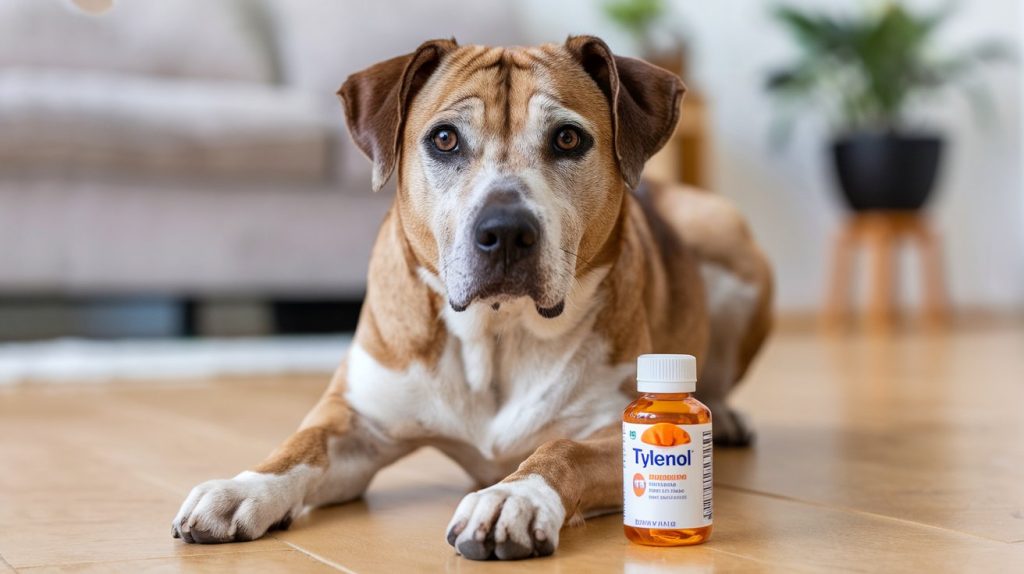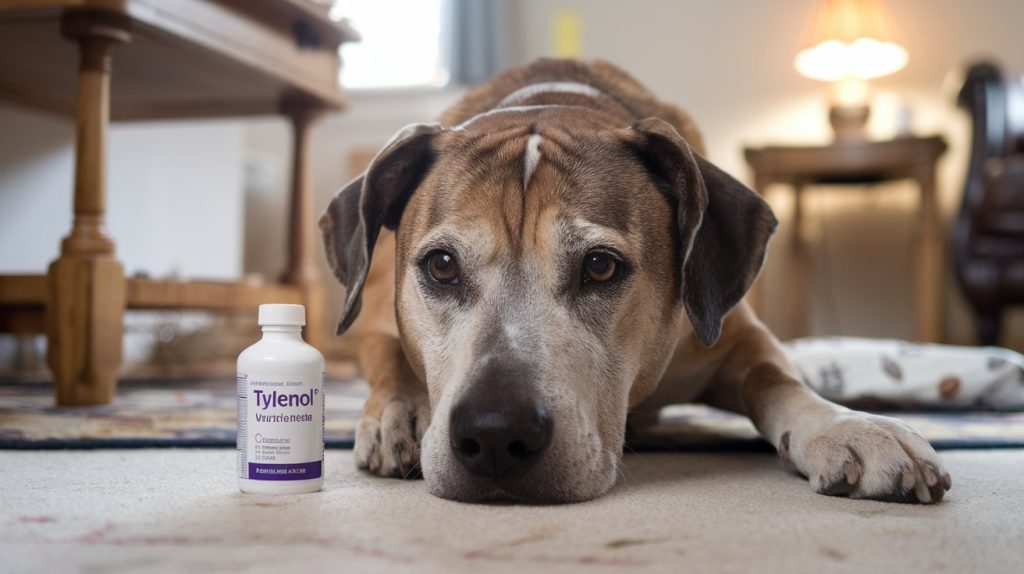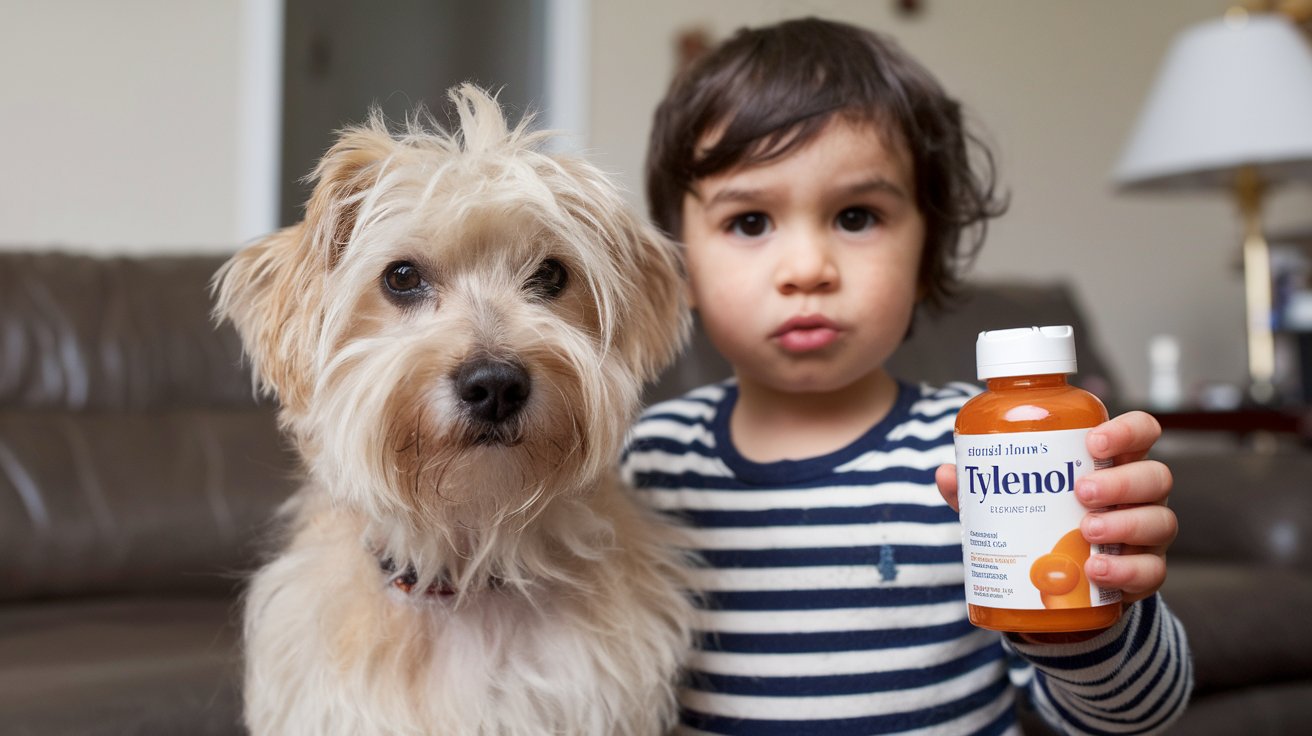Table of Contents
Can you give a dog children’s Tylenol? This is a common question among pet owners who want to provide quick relief for their furry friends. While it might seem simple, using human medications for dogs can be risky. This article will explore the safety of giving children’s Tylenol to dogs, alternative solutions, and how to ensure your pet stays healthy and happy.
Can You Give a Dog Children’s Tylenol

What is Children’s Tylenol?
Can You Give a Dog Children’s Tylenol? Children’s Tylenol is a brand of acetaminophen, a common over-the-counter medication used to reduce fever and relieve pain in children. Acetaminophen works by blocking pain signals in the brain and lowering body temperature. While it is effective for humans, it is not always safe for dogs.
Why It’s Risky for Dogs
Dogs metabolize drugs differently from humans. Acetaminophen can be toxic to dogs, even in small doses. Dogs lack certain enzymes needed to break down acetaminophen, which can lead to severe health problems. Giving a dog children’s Tylenol can result in liver damage, gastrointestinal issues, or even death.
Signs of Acetaminophen Poisoning in Dogs
Recognizing Symptoms
Can You Give a Dog Children’s Tylenol? If a dog ingests acetaminophen, it’s essential to recognize the symptoms of poisoning. These can include:
- Vomiting
- Diarrhea
- Loss of appetite
- Lethargy
- Difficulty breathing
- Swelling or pain in the abdomen
Seek out veterinary assistance right once if you observe any of these symptoms.
Immediate Actions to Take
Can You Give a Dog Children’s Tylenol? If you suspect your dog has ingested acetaminophen, do not wait for symptoms to appear. Contact your vet right away. They may suggest bringing your dog in for an examination or may provide instructions over the phone. Early treatment is crucial to prevent serious health issues.
Also read: Health Refers to Your Well-Being: Unlock Its True Meaning
Safe Alternatives for Pain and Fever Relief
Vet-Approved Medications
Instead of using children’s Tylenol, consult your vet for medications that are safe for dogs. Pet-specific drugs are designed to address pain and fever without the risks associated with human medicines. Your vet can recommend the proper dosage and medication for your dog’s needs.
Natural Remedies
In addition to prescribed medications, some natural remedies can help alleviate mild pain and discomfort in dogs. For example:
- Warm Compress: Applying a warm compress to discomfort can soothe pain.
- Proper Diet: Ensuring your dog eats a balanced diet can support overall health and comfort.
- Comfortable Resting Area: Providing a cozy, quiet place for your dog to rest can help with recovery.
Always discuss natural remedies with your vet before trying them.
Preventing Medication Mishaps
Safe Storage of Medications
To avoid accidental ingestion, store all medications, including children’s Tylenol, in a secure place out of your dog’s reach. Keeping these items in a cabinet or drawer, your dog cannot access is essential for their safety.
Training and Supervision
Training your dog to avoid eating things they shouldn’t is preventive. Supervising your dog, especially where they might find medications or other harmful substances, can help prevent accidental ingestion.
When to Seek Professional Help

Routine Check-ups
Regular vet visits are essential for monitoring your dog’s health and addressing any issues before they become serious. Your vet can provide advice on safe practices and recommend treatments if needed.
Emergency Situations
In cases of emergency, such as suspected poisoning, always contact your vet or an emergency animal clinic immediately. Time is of the essence in preventing severe health complications.
FAQS
Can You Give a Dog Children’s Tylenol?
No, not giving your dog Tylenol would be beneficial. Acetaminophen, the active ingredient in Tylenol, can be toxic to dogs and cause severe health issues.
What happens if my dog consumes Tylenol?
If your dog ingests Tylenol, contact your vet immediately. They can advise on the necessary steps and treatment to minimize health risks.
How can I prevent my dog from accidentally ingesting medications?
Store all medicines in a secure, high cabinet and supervise your dog to prevent access to potentially harmful substances.
Are there safe pain relief options for dogs?
Yes, consult your vet for dog-specific pain relief medications. They can recommend safe and effective options for your pet’s needs.
What are the symptoms of acetaminophen poisoning in dogs?
Symptoms include vomiting, diarrhea, lethargy, difficulty breathing, and abdominal pain. Immediately seek veterinarian assistance if you observe any of these symptoms.
Can you give a dog children’s Tylenol? The answer is no—children’s Tylenol is not safe for dogs and can lead to severe health problems. Instead, consult your vet for appropriate medications and treatments designed specifically for pets. Can You Give a Dog Children’s Tylenol? Maintaining the health and happiness of your dog can be achieved by being aware of the hazards and taking preventative action. Always prioritize your pet’s safety and well-being by avoiding human medications and seeking professional advice.

